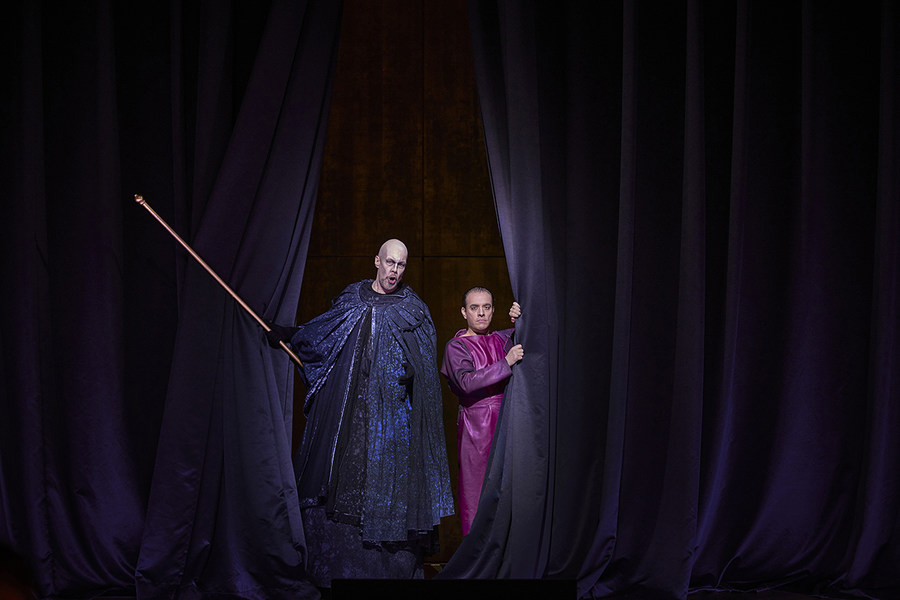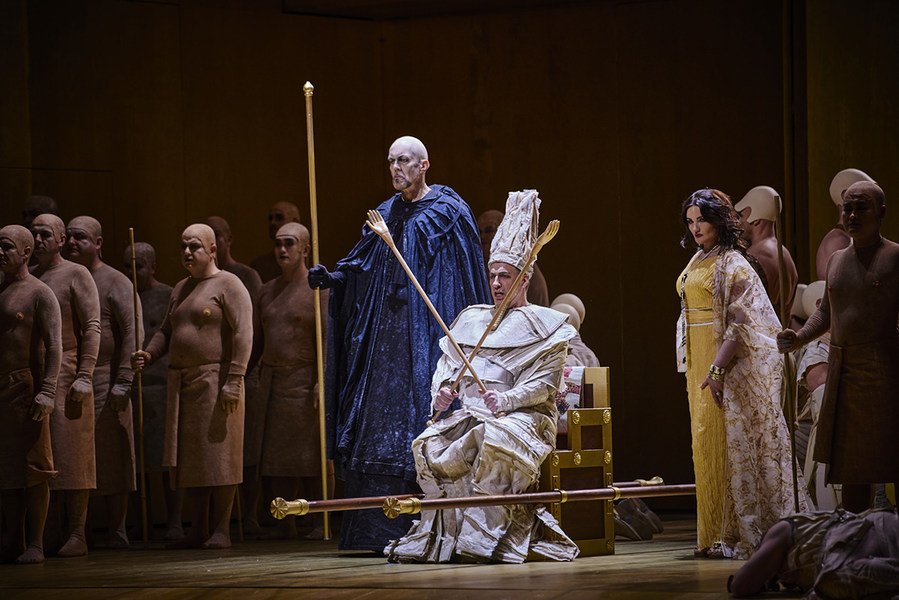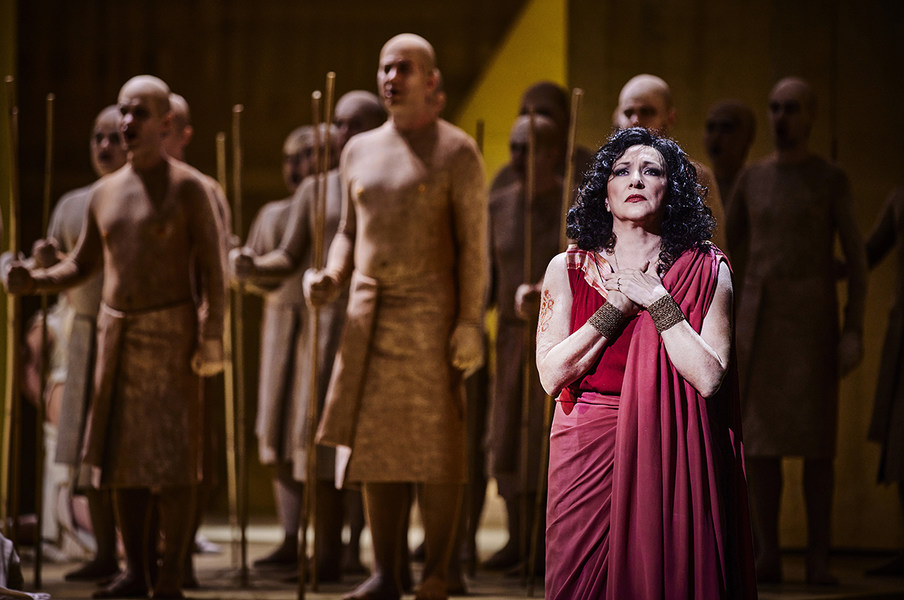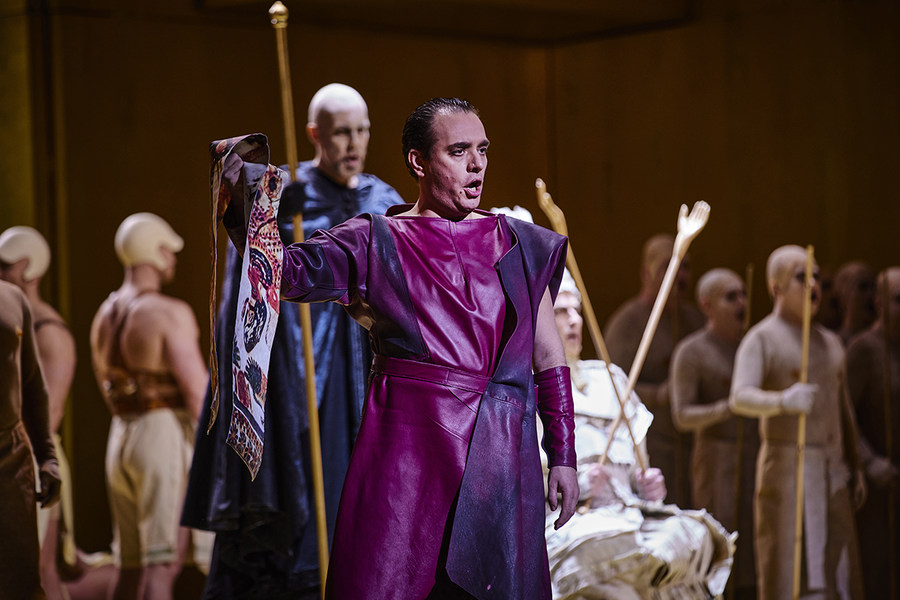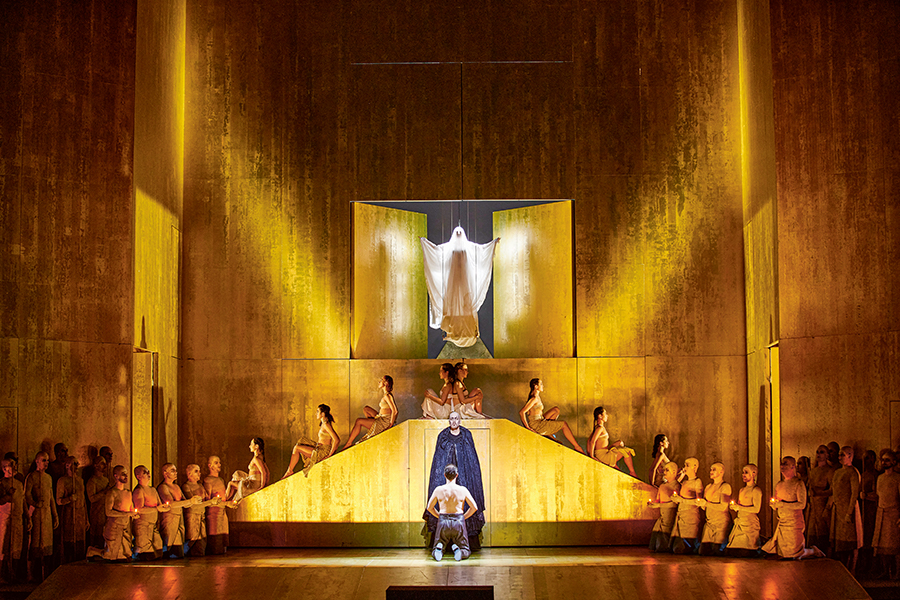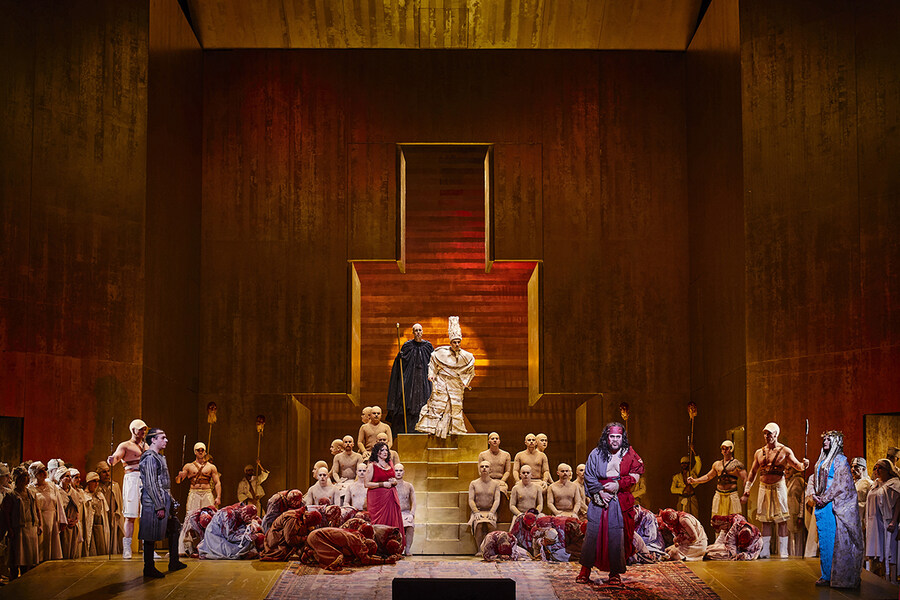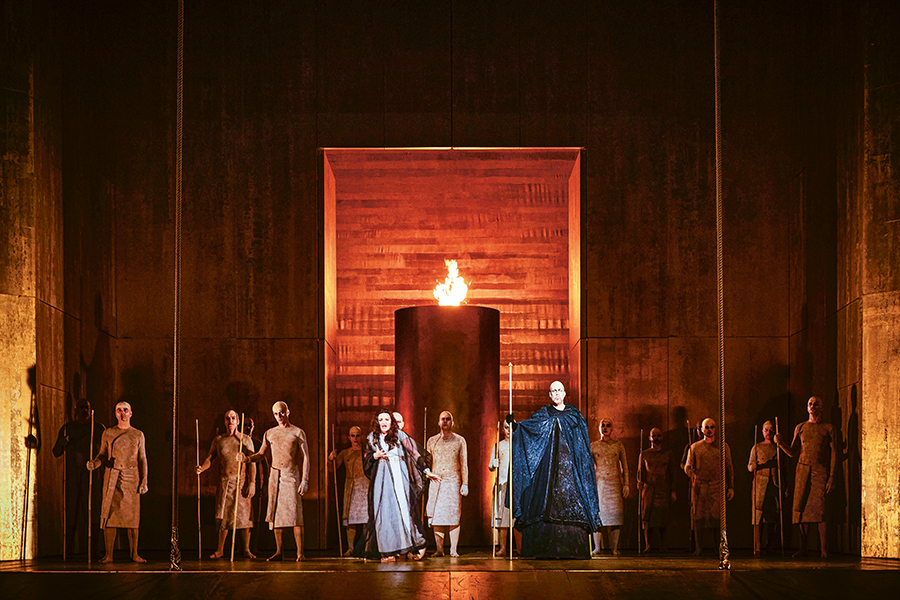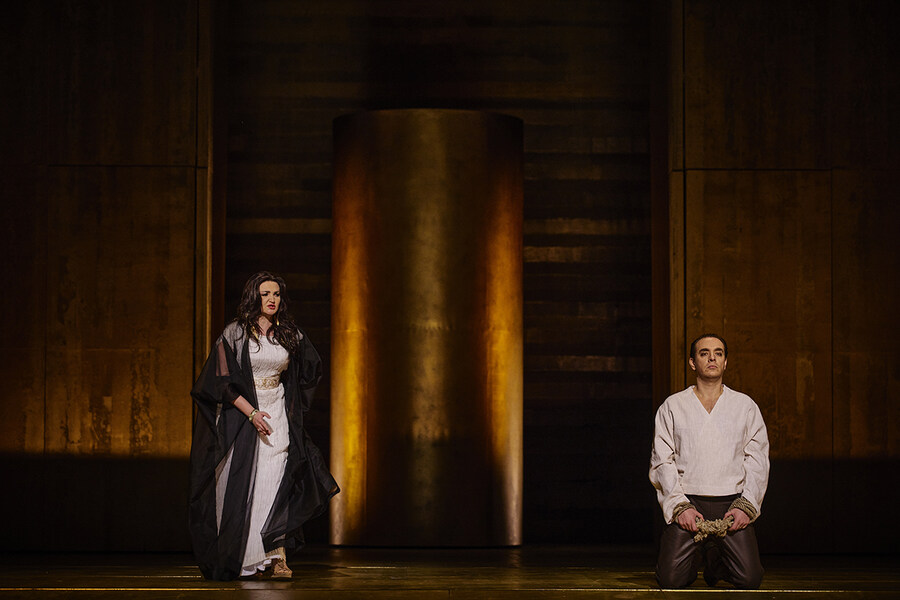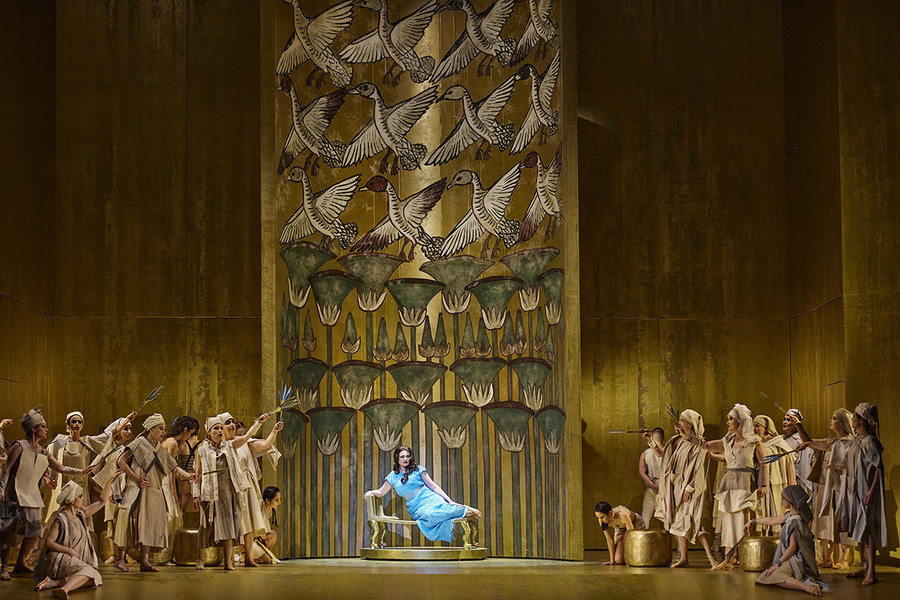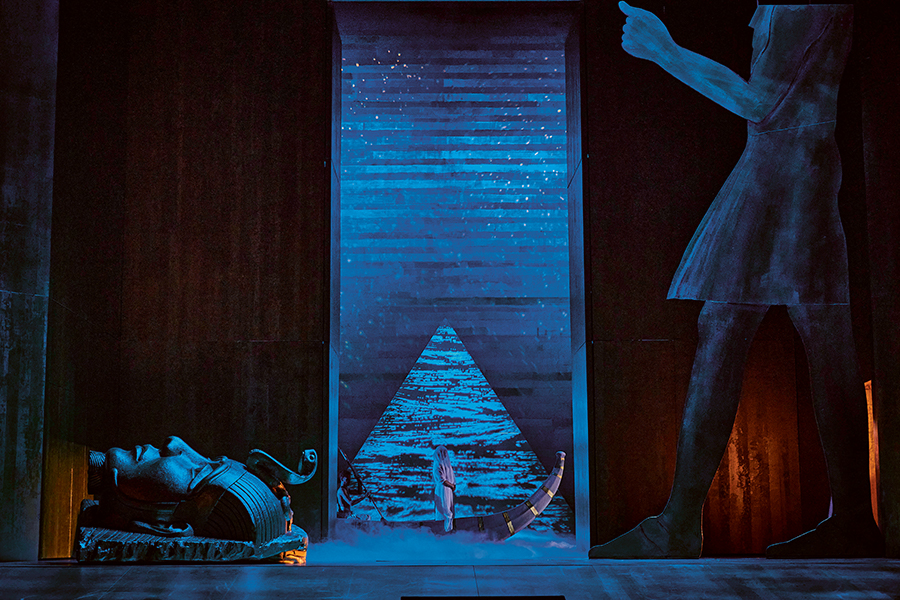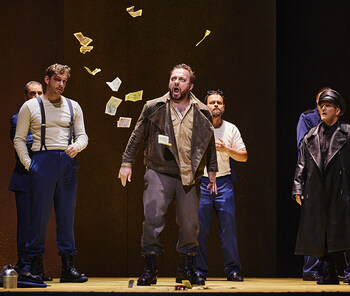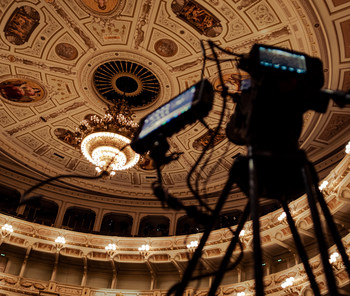Giuseppe Verdi
Premiere 5. March 2022
Performed in Italian with German and English supertitles
Trailer
Piece-Info
Christmas Eve, 1871. In Cairo’s newly built opera house, the curtain rises on the premiere of Giuseppe Verdi’s »Aida«. This is a turning point in cultural history, when an occidental passion for exoticism and an oriental interest in European high culture come together to create great art. Very few works of opera have achieved such widespread popularity. And rightly so: with its thrilling musical effects, exotic sounds and tableaux, the colourful instrumentation and monumental scenes alternating with moments of great intimacy, »Aida« is a true musical and dramatic treasure trove. And that’s not all. Through the tragic love affair between the Ethiopian princess Aida and the Egyptian army commander Radamès, torn between the interests of state, church and family, Giuseppe Verdi reflects on the crisis-ridden plight of the modern individual, ending with a highly moving plea for the utopian power of love.
Act 1
The high priest Ramfis, a close confidante of the Egyptian royal family, reports to the young officer Radamès that a new war against the Ethiopians is imminent and that the name of the commander will soon be announced. Radamès hopes to go to war as the Egyptian general. He dreams of victory and glory and of his secret love for the daughter of the Ethiopian king, Aida, who lives as a slave at the royal court. Amneris, the daughter of the Egyptian king, loves Radamès and hopes to win his affections. When she meets him in a euphoric mood and Aida appears, she suspects the love between Aida and Radamès.
The king declares war against Ethiopia after a messenger reports of the invasion of the Ethiopian troops. Radamès is proclaimed general. War fever breaks out, and Aida joins in as well. Aida is appalled that she is wishing victory for the man who is going to war against her people. In the distress of having to choose between her lover and her fatherland, she wishes for death. In a solemn ceremony, Radamès is prepared for war and given holy weapons.
Act 2
The women are waiting for the victorious warriors to return. Amneris dreams of a future together with Radamès. And in order to find out whether Aida loves Radamès too, she falsely tells her that he has died. Through her horror, Aida gives herself away ... Amneris confidently reveals herself as her rival. Radamès returns from the war. In gratitude for his victory, the king promises to grant anything he wishes. Radamès asks for the release of the Ethiopian prisoners. Amonasro, the Ethiopian king and Aida’s father, appears among the prisoners disguised as a simple soldier. The priests demand the death of the Ethiopians. The people ask for mercy for them. Ramfis proposes a compromise: only Aida and her father are to remain in the hands of the Egyptians. As a reward for his victory, the king gives Radamès his daughter Amneris’s hand in marriage. Amneris triumphs.
Act 3
The night before the wedding, Amneris and Ramfis ask for the favor of the gods. Without any hope for the future, Aida is waiting for Radamès. She remembers the beauties of her homeland. Instead of her lover, Amonasro first appears. He appeals to his daughter not to abandon her fatherland and asks her to coax out the secret Egyptian war plans from her lover. Radamès meets Aida. He confesses his love to her, which she reciprocates but considers to be completely hopeless. She persuades him to flee together and asks him at the last moment which route the Egyptian army is taking. Radamès reveals the state secret. Amonasro has overheard him and reveals himself. Amneris and Ramfis join them. Radamès realizes his betrayal of the secret and surrenders himself to the high priest.
Act 4
Radamès is charged with treason. Amneris tries desperately to dissuade him from his admission and to win his affections. He refuses. The priests hold the trial for Radamès and pass judgement: the traitor is to be buried alive. Amneris curses the priests and their judgement. Walled up, Radamès awaits death and suddenly discovers Aida. She has come in order to die with him. Aida and Radamès renounce life and see how the sky opens up above them and their souls soar up to the light of eternity. Amneris prays for peace for the couple.
Gallery
Aida
